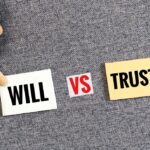In Florida, a state known for its volatile weather, storm damage is an unfortunate reality. Severe storms can cause significant harm to properties, leaving owners feeling overwhelmed and unsure of the next steps. I understand the challenges you face when dealing with the aftermath of storm damage. From fierce hurricanes to unexpected tropical storms, our beautiful state’s weather can be both breathtaking and unpredictable. In this blog post, I’m here to guide you through the essential steps you should take after experiencing storm damage to your property. Together, we’ll navigate the often complex insurance claim process and help you reclaim what’s rightfully yours.
Prioritize Safety and Mitigate Further Damage
First and foremost, your safety and that of your loved ones come first. After a storm, it’s crucial to ensure everyone is safe before taking any action. Once safety is ensured, take immediate steps to prevent further damage to your property. Cover broken windows, secure loose items, and safeguard your possessions to minimize the impact of the damage.
Notify Your Insurance Company
The first step after a storm should be to contact your insurance company. Let them know about the damage as soon as possible. Keep meticulous records of all communication, including names, dates, and details of your conversations. At EC Law Counsel, we’re here to assist you in effectively communicating with your insurance company. We can help you understand your coverage, explain the process, and ensure your claim is handled promptly and fairly.
Document the Damage
When dealing with storm damage in Florida, the importance of meticulous documentation cannot be overstated. A successful insurance claim hinges on a clear and comprehensive record of the aftermath. The first step in creating this record involves capturing visual evidence of the destruction. We advise you to take high-quality photos or videos of the damage. Capture every room of your property, paying special attention to structural damage. This includes damaged roofs, broken windows, flooded areas, or even seemingly minor details like cracked paint or warped floorboards. Remember to take wide shots to display the overall damage but also close-ups of specific damages. This photographic evidence will be crucial when negotiating with insurance adjusters.
Alongside visual evidence, it’s necessary to catalog any damaged personal property. This could range from large items like furniture or electronics, to smaller, invaluable items like keepsakes or jewelry. Start by making a room-by-room inventory of affected items, noting their condition, and, if possible, their value. Don’t overlook items in your outdoor spaces such as landscaping, sheds, or detached garages. For items that have been lost or are too damaged to be repaired, try to find old receipts, credit card statements, or photographs as proof of ownership.
After documenting the damage, you must secure your property to prevent further losses. This may involve tarping roofs, boarding windows, and removing any potential hazards. This process, often referred to as “mitigation,” is not only essential for your safety but is also typically a requirement of your insurance policy.
Professional Assessment
Having a professional assess the damage is a good idea. They can provide an unbiased, thorough evaluation of the damages, which can be invaluable when dealing with insurance adjusters. We at EC Law Counsel will ensure professional individuals are on your case to make this accurate assessment.
Filing a property damage claim post-storm can be an overwhelming endeavor, one fraught with intricacies and challenges. While it’s possible to manage this process independently, the road can often be winding, leading to undue stress and time investment. The insurance claim system, with its myriad of paperwork, fine print, and deadlines, can be a complex maze for a property owner to navigate alone.
Moreover, it’s not uncommon for insurance companies to undervalue the extent of damage in an effort to minimize their payout. They may employ a variety of tactics, such as highlighting ambiguous language in your policy, asserting that certain damages are not covered, or underestimating the repair costs. Sometimes, they might even outright deny claims on shaky grounds. This can leave you, the property owner, feeling frustrated and underserved, struggling to obtain the resources you need to recover and rebuild. If your claim is denied or you feel the settlement offered is inadequate, don’t despair. You have the right to appeal the decision.
EC Law Counsel is Your Ally in Storm Damage Claims
At EC Law Counsel, we understand how stressful dealing with storm damage can be. Our goal is to take some of that stress off your shoulders. Navigating the aftermath of storm damage in Florida can be challenging, but you’re not alone. I’m here to provide guidance, support, and legal expertise every step of the way. Together, we’ll work to ensure that your rights are protected, and you can rebuild and recover with confidence. With offices in Fort Myers and Hollywood, Florida, we’re well-positioned to serve clients across the state. To get started, call 954-861-0833 or contact us online to schedule a free consultation with an experienced commercial property attorney in Hollywood, FL. Let us guide you through the steps to take after storm damage to help you navigate this challenging time.





